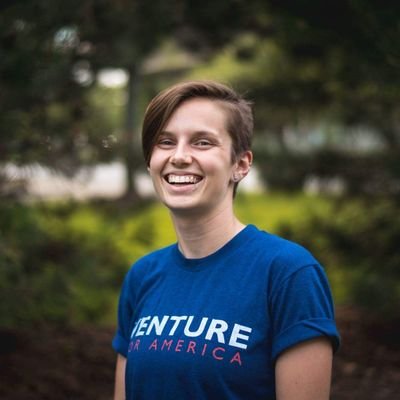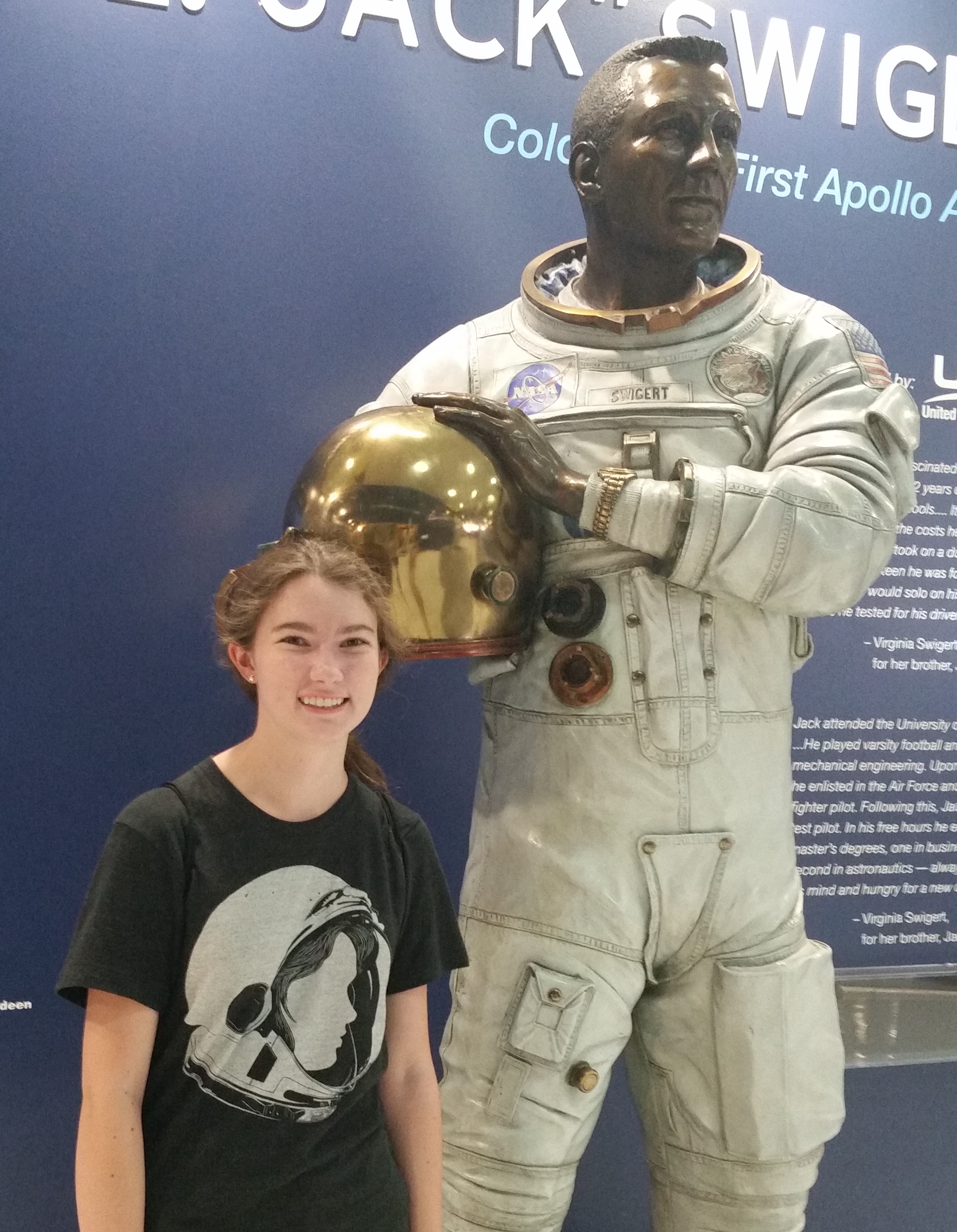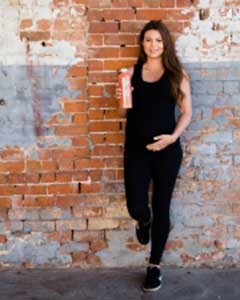Entrepreneurs are the people who solve the problems we didn’t always know we had. They work long hours to innovate ways to make life better. Often, even with brilliant ideas and hard work, they fail. And they start again.
This week celebrates these problem-solvers, with both Women’s Entrepreneurship Day, Nov. 19, and Global Entrepreneurship Week.
Arizona State University has a thriving support system for student, staff, faculty and community entrepreneurs. ASU offers degrees, workshops and the wide-ranging Venture Devils program, the umbrella for funding, space and mentorship in the office of Entrepreneurship + Innovation at ASU. More than 200 startups are part of Venture Devils, ranging from pie-in-the-sky ideas from undergraduates to companies that have drawn millions in investment capital and gone public.
In the United States, woman-owned companies account for 39% of all privately held firms and contribute 8% of employment and 4.2% of revenues, according to the National Association of Women Business Owners.
RELATED: ASU alumna wields fashion for social good in latest venture
More than 11.6 million firms are owned by women and of those, 5.4 million are owned by women of color.
Black women — especially those in technology fields — face many obstacles. Since 2009, less than 1% of the $425 billion in tech venture capital funding went to black female founders, according to Project Diane 2018, a report by DigitalUndivided, an entrepreneurial pipeline for women of color. And the average investment for that group is only $42,000, compared with the overall average of $1.3 million.
And a report from the Federal Reserve Bank of Kansas City reveals that 40% of black women who request investment financing from traditional banks are rejected.
At ASU, startups who are part of Venture Devils can compete for hundreds of thousands of dollars in investment capital at Demo Day, the pitch competition held every semester. The next Demo Day will be Dec. 6.
ASU has been supporting female entrepreneurs for years. Here are a few, along with their advice:
Sangeeta Agarawal
Agarawal found a lot of support at ASU when she needed it the most. Since then, she has had an amazing journey that led her to build a company that helps people when they are at their most vulnerable.
“I came to ASU for graduate school in computer engineering, and that itself was quite remarkable because I came from a very traditional family in India and neither boys nor girls had gone to the U.S. and no women had ever worked as a professional,” she said.
“So I had to do it opposing my family.”
At ASU, Agarawal found the International Students and Scholars Center and the Indian Student Association, which helped with transportation and lodging when she arrived.
“ASU was very helpful to students like me who didn’t know anyone or anything, and I got a lot of support, emotional as well as logistical,” she said. “I had a host family who ‘adopted’ me, and if I had a flat tire or a really bad day, I had someone who treated me like family, which was really amazing.”
Agarawal did groundbreaking work in mobile application research while at ASU and continued the work with IBM after she graduated in 2003. She later worked on performance engineering at Motorola.
“Alongside that, what I was doing on my own was video streaming on the phone, which didn’t exist at the time,” she said.
“I wanted to do that as a way to share truth, because otherwise, things are edited through someone else’s eyes. I’ve seen bad things in my life, with violence toward women as the norm, but there was no way to show what happened.”
She was working on mobile coding and eventually created a working prototype.
“I built the technology and was able to get thousands of people using it and it did eventually get acquired by Skype, giving rise to video streaming on the phone, back in the Nokia and Razr days.”
During her journey in the technology world, her health began suffering.
“I was going through a difficult time trying to figure out how to get my life back,” she said. “The same rigor I applied to my research I decided to apply to my health, and to become the CEO of my own health.”
She researched health care, trained as a yoga instructor and became an oncology nurse, focused on quality of life.
“It meant so much to me to find my life that I decided to devote my life to my mission of helping other people live their lives to the fullest,” she said.
She worked at Mayo Clinic and at the Stanford Hospital and Clinics, developing symptom management and quality of life protocols, and received a grant from the National Institutes of Health to research the topic.
“I would see people hurting for things for which I knew there were answers,” she said. “I was doing research to see if we could do this at scale.”
She joined an entrepreneurship accelerator at the University of California at San Francisco to figure out how to build a commercial company out of her research.
“When someone is having a health issue, we’re hyper-focused on addressing that aspect, like the stroke or curing the cancer,” she said. “But there are a lot of other issues, like emotional and social issues, feeling lost and lonely, affecting the treatments. There are a lot of social determinants to being healthy.”
In 2016, Agarawal founded Helpsy Health, a virtual “whole-health nurse” platform for practitioners.
“We’re an artificial intelligence system, one of the most comprehensive of its kind in the world,” she said. “We create a care plan that anticipates the emotional, physical and social needs of the patient and uses all evidence-based modalities, like education, nutrition, meditation or yoga.”
Helpsy Health is meant to save time for staff and improve patients’ symptoms, but the company has discovered that it has created savings, as well.
“We realized last year that all of this results in significant savings for insurance companies and employers, an average $5,000 to $15,000 per patient going through a complex health issue,” she said.
The company has helped more than 20,000 patients so far and is used by thousands of employers across the country.
Agarawal has also continued to focus on her own well-being.
“When you have a bowl that’s full, you can give to others. If you’re empty, you can’t give life to others,” she said. “I still meditate and exercise, and I take Saturday off no matter what.”
In 2018, Agarawal was selected to attend the Global Entrepreneurship Summit in India as an inspirational business founder.
“It meant a lot to my family for them see me as a woman from a place where you don’t get to choose what you’re going to eat or be allowed to speak up, and how I went on to build a life and a career and that now I’m inspiring others,” she said.
Advice: “The journey is incredibly hard, maybe harder than what you would have imagined, but at the same time you’re stronger than you realize,” she said.
“Even when you do face challenges, you will find the emotional strength to push through them.”
Veronica Head
Many startups don’t turn into thriving businesses but still become learning experiences.
While she was at ASU, Head and two other students created a startup called Aquaponos, an aquaponics gardening kit to grow fresh herbs and greens at home in water.
“It was fun, and we saw it as a cool passion project,” she said. They joined Venture Devils, pitched at Demo Day and won several thousand dollars in funding.
“We learned that three engineers working on designing a physical product can be disastrous if no one is a business student,” Head said. They created a minimal viable product but never launched their planned e-commerce site. The business is no longer active.
“It’s not the outstanding success story, but it’s OK,” said Head, who has continued to work in the world of entrepreneurship.
“I think learning through failure is really valuable. You can always wish in hindsight you’d done things differently, like I wish I had known more about building a diverse team or had a way to find people who could supplement the skills me and my team didn’t have.”
Venture Devils helped the team with mentorship, and they got advice on marketing and branding that they wouldn’t have otherwise known.
“I think one of the biggest things I learned was to experience failure and figure out how to learn from that and get back on your feet,” she said. “It’s one of the biggest things I carry into my professional career and the entrepreneurial things I do.
“I thinks it’s a bug, and I’ve caught that bug,” she said.
After graduating in 2018, Head joined Venture for America, a two-year work fellowship for young graduates who get jobs at startups in rising cities.
“First I was at a construction and technology company that works on demolition and removal of blighted homes in Detroit,” she said. “I got very hands-on because it was a small but gritty startup. It was interesting being a woman in the construction field and being in a male-dominated space.”
Now she works at Goodbets Group, as the first employee besides the founder of the consulting organization for social ventures.
Head says she has seen female clients struggle to raise investment funds.
“They’ll apply and think there’s a good strategic alignment and then see a venture led by a white guy get the funding over them and not receive a reason why,” she said.
“But I’ve also seen (venture capital) firms specialize in underrepresented companies come to Detroit and run accelerators.”
Advice: “ASU is really good place to experiment, and it’s a good time to do that. You have a lot of resources and support, so if there’s an idea you’re toying around with, start experimenting. Interview customers and see if it’s something people need. ASU will give you the resources to do that in a place where it’s much easier to do so.
“It has been nice to take advantage of strong communities within entrepreneurship, to keep yourself sane and to connect with other amazing and inspiring women in your space.”
Emily Karlzen
Karlzen created a venture based on her passion for space.
“I’ve been a giant space nerd my entire life, and I got really obsessed with the Mars rover when I was in elementary school and then I started learning about the shuttle,” said Karlzen, who went to space camp as a kid.
When it was time for college, she was torn between aerospace engineering and business.
“I decided I could do more with business and go into anything, and when it was time to make a company, I decided to do something with space,” said Karlzen, who is a senior majoring in business entrepreneurship with a minor in construction management.
Her startup, Arch Rift, will make an oxygen helmet for tourists to wear in space. She has a three-dimensional printed mockup and is working on getting funding for the company, which is part of Venture Devils.
She came up with the idea a year ago when she participated in an entrepreneurship boot camp in Silicon Valley.
“I was really stumped for an idea the entire time, and I went through 10 to 20 ideas and wasn’t happy with any of them,” she said. She was chatting with another student about the obstacles to space tourism and thought, “'I can fix that,’ and that’s how I came up with the idea.”
A lot of the people in the boot camp were creating applications and software solutions to address current problems.
“The cool thing, and also the downside, to my company is that it’s forward-looking,” she said. “Our main market won’t come to fruition for a few more years.”
After the boot camp, Karlzen legally incorporated her business and joined the Startup Grind Phoenix community, where she meets with other entrepreneurs to brainstorm and keep on track. She has filed for provisional patents. This past weekend, she won $2,500 in startup funding at the NewSpace Business Plan Competition in Austin.
Although Karlzen is passionate about space, she didn’t know a lot about space suits.
“I’ve had to do a lot of research. I have a folder of all of these articles from NASA and other people about the next-generation space suits and how they work,” she said.
This semester, she took a class in space business entrepreneurship in the School of Earth and Space Exploration, where she met two other female students and brought them onto her team, a PhD student in chemical engineering as the chief technology officer and a senior majoring in astrophysics as the chief science officer.
The class has given her the opportunity to pitch her company several times to professors and guest experts.
“The problem with space companies is that funding is difficult because venture capitalists look at short-term returns. They want to make their money back in five to 10 years, and space companies move slowly,” she said.
Her professors have pointed out other potential funding sources, such as government grants. She’s also continuing to pitch her company at competitions and will be part of Demo Day next month.
Female entrepreneurs in the space field are rare, Karlzen said.
“We have tons of speakers every class, and they try to be diverse but there’s only been two females — so it is kind of rare to find a woman on a commercial space team, and it’s even more rare to find all women on a team,” she said.
Advice: “I’ve talked to women in the field, and being persistent is the main thing. Sometimes women aren’t taken as seriously,” she said. “I have my technology explained to me by people who are not in the space business telling me I’m wrong even though they don’t know anything about space.
“And you have to defend yourself so it’s a delicate balance. I’ve gotten advice on how to deal with people in good ways.”
Alexandra Maw
Lots of would-be entrepreneurs have ideas, but for Maw, her venture came to life when she wrote it down.
Maw, the founder and CEO of Kaleidoscope Juice, came to ASU as a freshman from Vancouver, British Columbia. As a junior, she agreed to help a friend who was pursuing a grant through the Edson Student Entrepreneur Initiative, which is now part of Venture Devils.
“As I was going through that process with them, I realized I had my own idea for healthy food fast, so I put together a business plan, and I became a grant recipient and got an office in SkySong and mentorship as well,” she said.
“The biggest thing for me was the act of putting my ideas on paper and creating that business plan.”
Maw always had a passion for healthful food and saw that there was an opportunity.
“There weren’t as many healthy ingredients around in 2007,” she said. “It forced me to create that plan and think through the logistics, the financials, the location, the revenue and food costs. It was such a great exercise because by starting small, you wouldn’t think to put all that together, so it was an impactful thing for me.”
Maw was majoring in real estate development at ASU and graduated in 2008, as the market was crashing.
“I learned so much from that program, but that was the fork in the road for me,” she said. “But it was slow going, and no one would lend me money so a brick-and-mortar store was not happening.”
She decided on home delivery for her business, which started as Pure and was later rebranded as Kaleidoscope. And she focused on juice and salads.
“I packed coolers and delivered them to people’s doors and then swapped out their coolers and stocked their refrigerators,” she said.
She got great word-of-mouth marketing in the yoga community.
“It snowballed and we needed to get a commercial kitchen to sell to the public,” Maw said.
She shared space with a bakery in Scottsdale and made and sold her juice there while still delivering. Soon after, her yoga friends opened a studio and Maw put her first juice bar inside.
Maw now has 60 employees, and in January, Kaleidoscope will open its seventh location, in Gilbert. The organic menu features cold-press fruit and vegetable juices, shakes, salads, sandwiches, protein and breakfast bowls and gluten-free snacks.
“I still don’t have an equity partner so we retain 100% ownership, which is great,” she said. “We wanted to grow organically, the way we wanted to.”
Maw said that starting a business with no experience was “trial by fire.”
“Learning the restaurant business and learning business in general has been such a challenge,” she said. “Also, I’m learning leadership skills and how to empower a team.”
Maw now has a 6-month-old baby.
“I haven’t had anybody slamming doors because I was a woman, but I have been hindered because I can’t put in those really long days anymore,” she said.
Advice: “We painted on the floor of the first shop, ‘Leap and your wings will appear.’ When I was graduating and the whole real estate market crashed and everyone was losing everything, it seemed like the worst time ever to start something, but you have nothing to lose, so leap and your wings will appear,” she said.
“Also, make that business plan, and there’s no way around putting in the work.”
Dawn McClain
McClain has worked in the professional world for several years and even owned her own business at one time, but she still is glad for the mentorship she has received through Venture Devils for her latest startup.
“This is not my first go-round as an entrepreneur,” said McClain, who works as a project manager for ASU. “In the second part of my career, I wanted to do something more creative, and in the process of thinking what I would be passionate about, I found out about the resources at ASU. There was some fresh perspective.”
McClain is certified by the Project Management Institute and her venture, Artifacts AI, is software geared toward project managers of varying skill levels. She is in the “minimum viable product” stage of the process.
“I love being able to benefit from the mentorship,” said McClain, who at one time owned a retail store and also worked at a financial institution for many years. She’s now working on her undergraduate degree in liberal arts at ASU.
She lamented the difficulty that women of color have in securing investments for their ventures.
“I’m interested in being a part of minority-owned technical entrepreneurs, and that’s a really small segment of the market,” she said. “Raising capital is really hard.”
For her first business, she had mentorship from SCORE volunteer mentors, which highlighted the importance of her crafting a solid business plan.
“I did that very carefully, and by the time I sat down with banks to talk about financing, they were willing to get on board because I had positioned myself in the market,” she said.
McClain said she would caution entrepreneurs about giving up equity to get funding.
“You have to be comfortable with how much control you’re giving up,” she said. “That’s a compromise I made years ago when I was first in business, and I feel like I gave up too much of the control and it led to it feeling like a job rather than something I had created, which I did.”
Advice: “Find something you’re passionate about or the cost is too great,” she said. “When I owned my business, I literally worked seven days a week. I had a full-time job and I had a staff, but it meant I was working in the store in the evenings and weekends.”
Top image by Pixabay
More Science and technology

ASU professor breeds new tomato variety, the 'Desert Dew'
In an era defined by climate volatility and resource scarcity, researchers are developing crops that can survive — and thrive — under pressure.One such innovation is the newly released tomato variety…

Science meets play: ASU researcher makes developmental science hands-on for families
On a Friday morning at the Edna Vihel Arts Center in Tempe, toddlers dip paint brushes into bright colors, decorating paper fish. Nearby, children chase bubbles and move to music, while…

ASU water polo player defends the goal — and our data
Marie Rudasics is the last line of defense.Six players advance across the pool with a single objective in mind: making sure that yellow hydrogrip ball finds its way into the net. Rudasics, goalkeeper…







